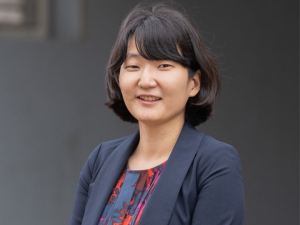As the energy transition motors on to reduce the use of fossil fuels, the need for lithium has grown exponentially over the past decade because lithium-ion energy storage (i.e., lithium-ion batteries) powers both electric vehicles and renewable solar and wind electricity generation.
Kyung Jae Lee, assistant professor of petroleum engineering at the University of Houston, has received a Faculty Early Career Development (CAREER) Award from the National Science Foundation for $508,722 to contribute to the enhancement and diversification of the domestic supply of lithium for sustainable and renewable energy storage. Lee will examine lithium-rich rocks that contain oil and natural gas, like shale, to identify a new source of lithium-rich brines in petroleum source rocks for sustainable energy storage.
“While water produced from organic-rich petroleum and natural gas source rocks has been considered wastewater, it has been recently revealed as a potential source of substantial amounts of lithium. This opens new pathways to address the entire petroleum system and lithium geochemical cycle,” said Lee. “We will develop a transformative framework for characterizing lithium in source rock brines, thus laying the foundation for converting a source of oil and gas into a sustainable source of lithium.”
Despite the urgent need to meet the demand for lithium as an essential element in preferred energy storage technology for energy transition, the U.S. has limited domestic production of lithium in the upstream supply chain.
Lee’s project will determine the reaction mechanism of kerogen conversion-releasing lithium and enhance modeling capability for characterizing the transport of it. As part of the project, Lee will also develop educational programs to enlighten present and future energy professionals’ understanding of subsurface processes related to the origin, fate, and transport of sustainable resources in the subsurface energy systems.
NSF CAREER awards are granted to highly promising junior faculty members who exemplify the role of teacher-scholars through “outstanding research, excellent education and the integration of education and research.”
